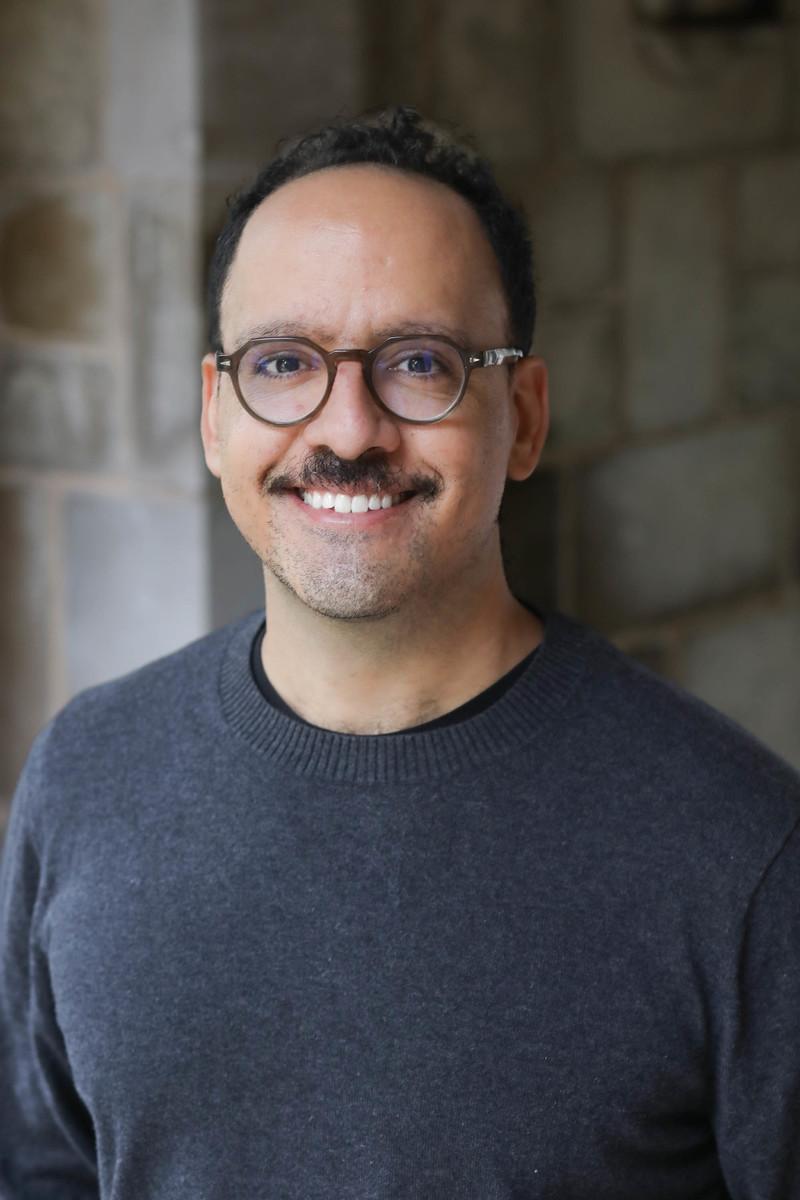
In Brief
- Gerson (JD‘14, MPP‘14) will lead the Center’s Human Rights Lab.
- He draws on a decade of experience as a lawyer and professor.
- He is currently seeking student applicants for a court-watching program.
As a lawyer, Pedro Gerson (JD‘14, MPP’14) has worked to hold police accountable in Mexico, defended immigrants facing criminal charges in the Bronx, and fought for immigrants held in Louisiana prisons.
Now, as the new director of practice at the Pozen Family Center for Human Rights, he wants to help UChicago students learn how they too can advance human rights in the field.
Gerson views the Pozen Center’s Human Rights Lab, which he now oversees, as a hub connecting students—especially human rights majors and minors—with a wide range of fieldwork opportunities.
“Fieldwork can be local, right here in Chicago, and it can take place abroad,” he says. “And it can take many forms. Maybe you’re helping to advocate within the legal system. Maybe you’re making a documentary. Maybe you’re examining an existing human rights intervention, helping to evaluate its success. Maybe you’re working with an outside organization, and maybe you’re working on a project based within the Lab. We can be a home base for all of it. The point is that you’re taking what you learn in class and learning how to put it to use in the real world.”
A History of Fighting for Rights
After receiving his UChicago law degree in 2014, Gerson returned home to Mexico, where he worked in government and in the nonprofit sector, trying to develop solutions to corruption and impunity among Mexican police.
After Donald Trump’s victory in the 2016 U.S. Presidential election, he was inspired to come back. “I had this U.S. law degree, and I was suddenly aware of all these immigrants who, thanks to the new administration, were about to be in a much worse position,” he recalls. “So I thought, why don’t I try to help?”
He moved to New York and joined the Bronx Defenders, a renowned public defender agency. He helped immigrant clients navigate criminal charges, paying special attention to how different court outcomes affect immigration status. “Without guidance,” he says, “people can think they’re taking a good deal—but end up getting deported.”
From the Bronx, Gerson headed south to Baton Rouge, where he ran the immigration clinic at the Louisiana State University Law School. He was surprised to learn just how many people were held in Louisiana prisons for immigration-related reasons: only Texas has more immigrants in detention. As Gerson set about figuring out how to help them, and how to teach his students to do the same, he also investigated why so many of them were in Louisiana in the first place. Eventually, he published an academic paper on the subject.
Most recently, Gerson taught at the California Western University School of Law, developing courses that focus on “crimmigration,” a term for interactions between criminal law and the immigration system.
But he missed overseeing work in the field. “When the chance came to join the Pozen Center, I knew it was the right next step,” he says.
Connecting the Classroom and the World
Gerson will draw on his experiences to deepen the Center’s commitment to bridging theory and practice, creating situations where classroom engagement with canonical and cutting-edge scholarship informs work in the field, and vice-versa.
In the classroom, he will teach the Human Rights Field Work course, which trains students in human rights monitoring and documentation, trauma-informed research and interview practices, effective human rights advocacy, and field work ethics. He will also teach a version of his law school “crimmigration” course, updated and modified for undergrads.
At the Human Rights Lab, he will seek out connections with other nodes of human rights work, both within and beyond UChicago, identifying ongoing projects in the human rights space that students can join. “Human rights work touches so many areas, from the environment to immigration, and takes so many forms, from research to advocacy. I want the Lab to be an entry point for all of it.”
For example, Gerson recently put out a call for students interested in taking part in an Illinois court-watching program run by the Illinois Network for Pretrial Justice. Student participants will be trained to attend trials to track the implementation of the new Illinois Pretrial Fairness Act. He also plans to soon start teaching students how to lead local know-your-rights trainings for immigrants and others.
Future Plans
Down the road, Gerson will launch brand new initiatives housed within the Pozen Center’s Human Rights Lab These initiatives will be designed such that students can easily come aboard and quickly make a meaningful contribution. In some cases, they will involve summer opportunities through which human rights majors can satisfy their fieldwork requirement.
One of his long-term ambitions is for the Lab to give UChicago students a direct path to getting involved in the global conversation about restorative justice, an approach to crime that focuses more on the repair of harm done to victims than on retribution or punishment.
“It’s an exciting time to arrive,” he says. “The interest from UChicago students in human rights and justice issues is very strong. The Pozen Center is a home base where they can explore that interest, get ready for the field, and make sense of their experience when they get back.”
